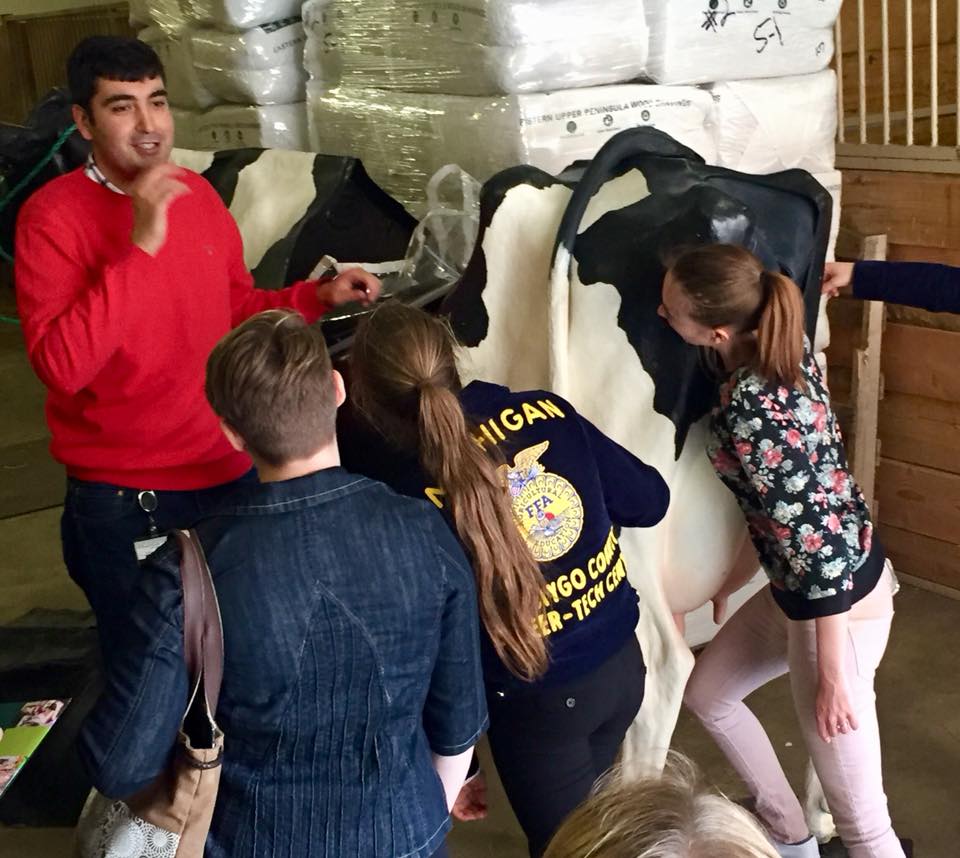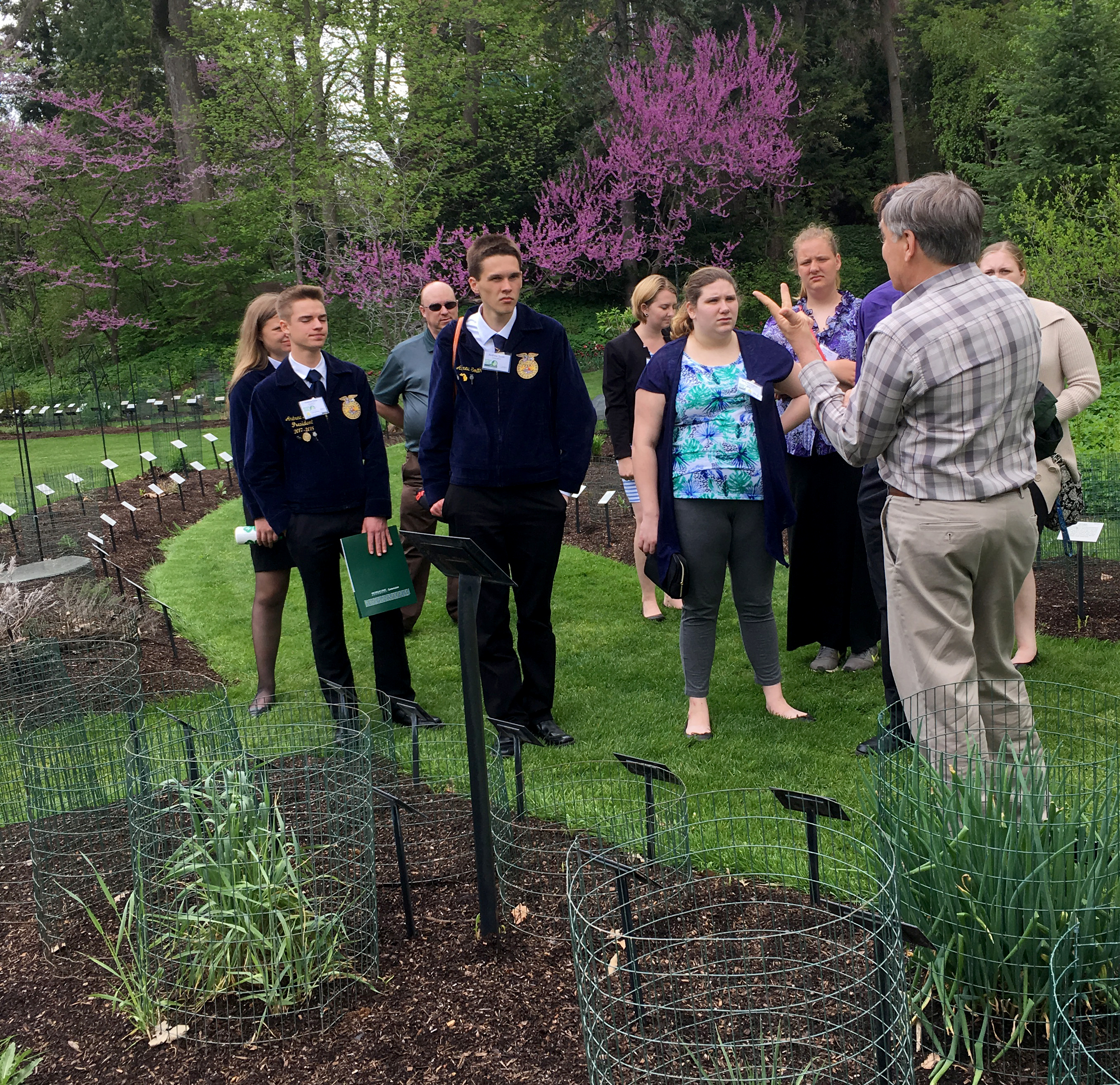Michigan Borlaug Scholars explore Michigan State University
World Food Prize Michigan Youth Institute delegates get a taste of campus and careers.

Michigan’s World Food Prize Youth Institute provides an opportunity for high school students to explore Michigan State University’s campus and facilities. Through the event’s immersion experiences, participants can gain a better understanding of the degree programs offered at MSU in addition to potential career pathways they may pursue related to their interest in addressing global food security issues. The participants may meet faculty, researchers or students during the immersion experience and learn about research projects taking place at MSU.
The 2018 World Food Prize Michigan Youth Institute took place May 10 with 37 high school students attending the event in East Lansing, Michigan, and 15 students attending the event at MSU’s Upper Peninsula Research and Extension Center in Chatham, Michigan. The schedule for the Michigan Youth Institute included round table discussions in the morning and immersion experiences in the afternoon. All students who fully participate in the event’s activities receive recognition as a Borlaug Scholar.
The immersion experiences may include tours of MSU laboratories, farms and facilities. The purpose of the immersion experiences is to provide participants with a more in-depth understanding of real world solutions that are addressing global food security issues. Through the experiences, the students have an opportunity to see research taking place, listen to experts explain their research and participate in hands-on activities to engage them in learning.
 The immersion experiences offered for this year’s participants included:
The immersion experiences offered for this year’s participants included:
- Upper Peninsula Research and Extension Center—participants at the Chatham site toured the facility’s North Farm where they had the opportunity to learn about soil health and organic vegetable production. Students learned how to start plant seeds for hoophouse production and how the state of Michigan works with famers to minimize agricultural pollution risks through the Michigan Agriculture Environmental Assurance Program (MAEAP).
- MSU College of Veterinary Medicine—participants met with two veterinarians who work in the large animal clinic and specialize in food animal medicine. During the visit, students had an opportunity to view a live surgery and simulate a calf delivery using the teaching model.
- MSU Student Organic Farm—participants toured the working farm and hoophouse operation where they learned about year-round growing and marketing techniques. Students got their hands in the dirt as they helped select vegetables for harvest.
 J. Beal Botanical Garden—participants talked with the curator of the garden who is currently responsible for carrying out the work started in 1897 by MSU professor William James Beal. During their garden tour, they learned about Beal’s research on the hybridization of corn.
J. Beal Botanical Garden—participants talked with the curator of the garden who is currently responsible for carrying out the work started in 1897 by MSU professor William James Beal. During their garden tour, they learned about Beal’s research on the hybridization of corn.- MSU Museum—participants visited the Hall of World Cultures Exhibit where they observed artifacts from Asia, Africa and the Americas that represent themes of social, economic, political, religious and technological innovations. During the experience, participants engaged in an activity to learn about the source of ingredients in chocolate.
These immersion experiences may increase student awareness of careers in areas such as science, technology and social science. Potential careers in these areas may include researcher, laboratory assistant, veterinarian, farmer or anthropologist.
High school students interested in participating in Michigan’s World Food Prize Youth Institute in the future should visit the Michigan’s World Food Prize Youth Institute website. Dates and registration information for the event are available in early spring.



 Print
Print Email
Email




